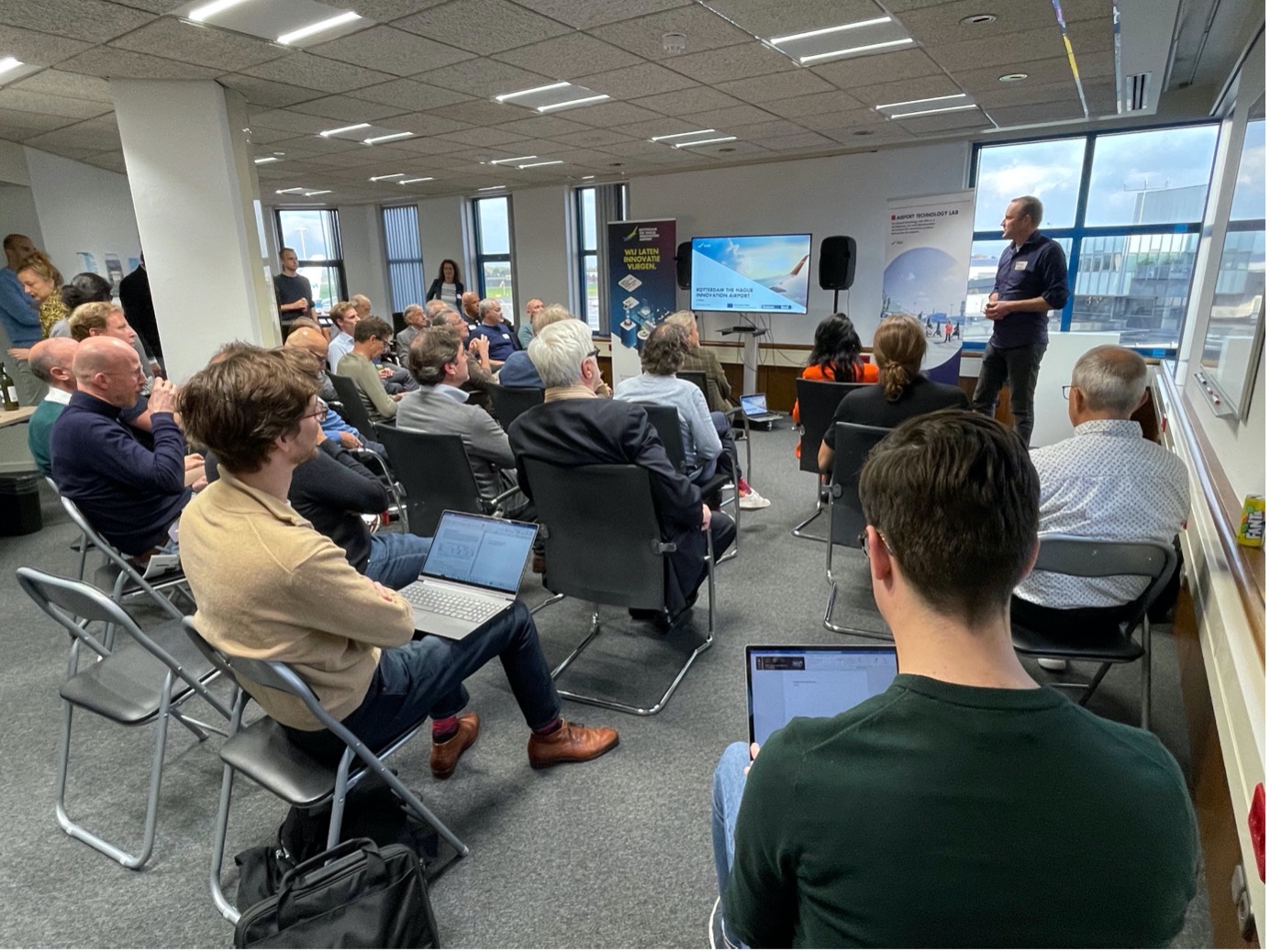The aviation industry is facing many challenges and opportunities in its journey towards a sustainable future. On the 20th of October Transavia, and challengers Maeve and Zepp.Solutions shared their latest development and challenges during the kick-off of the Sustainable Aviation Challenges. We look back at a successful kick-off of the Sustainable Aviation Challenges event and we were glad to see so many changemakers interested in the challenges and opportunities in the transition towards sustainable aviation. We are now ready to take these challenges to the next level!
At the kick-off Erwin Koenraads CFO of the Dutch startup Maeve Aerospace explained the challenge of the delicate balance between passenger count, range and battery with regards to flying electric. By 2030, they want to launch their electric plane that can cover a distance of 550 kilometres with a capacity of 44 people. The plane will be CO2-free and 40 per cent quieter than current planes of this size, all on one battery charge. Maeve sees much potential for the future of electrical flying, as battery technology is getting better and better.
Nico Gielen, Investment lead Transavia Ventures shared his vision on where and how the aviation market is transforming to make aviation sustainable. Transavia recently invested in the growth of Lucy, an aviation startup planning to fly all-electric aircraft as part of their sustainability strategy for this year. Transavia is also exploring to fly more on SAF and Hydrogen. Nico also explained how flying at Rotterdam The Hague Airport on hydrogen could get accelerated and how regional airports in the near future will play a more important role for connectivity and as an Energy hub for multi-modality mobility.
‘Turning zero emission dreams into reality using hydrogen fuel cell technology’,
Jan Bot, one of the co-founders of scale-up Zepp.solutions, spoke about the development and production of the hydrogen fuel cell systems for the HAPSS hydrogen airplane project consortium. Zepp.solutions is contributing to different work packages, but their main focus is on zero-emissions airside operations, where they support the concept development, selection and planning. They are responsible for the development and demonstration of the hydrogen-powered GPU prototype.
With these challenges Rotterdam The Hague Innovation Airport (RHIA) and WorldStartup aim to strengthen and expand its community of stakeholders by sharing knowledge, attracting and involving stakeholders who can co-create innovation solutions as in any industry. Start-ups and scale-ups – both from inside and outside the industry- are essential for the implementation of new technologies and solutions.
We welcome start-ups, scale-ups and early-stage investors to join us on this journey, more info on how to join will follow soon. If you are an organisation that wants to utilize the potential of the RHIA and WorldStartup community for their innovation challenges let us know!
This event is part of the challenge and support program for change makers organized by RHIA and WorldStartup as part of the Airport Technology LAB (ATL). ATL is supported by EFRO/ Kansen voor West.




